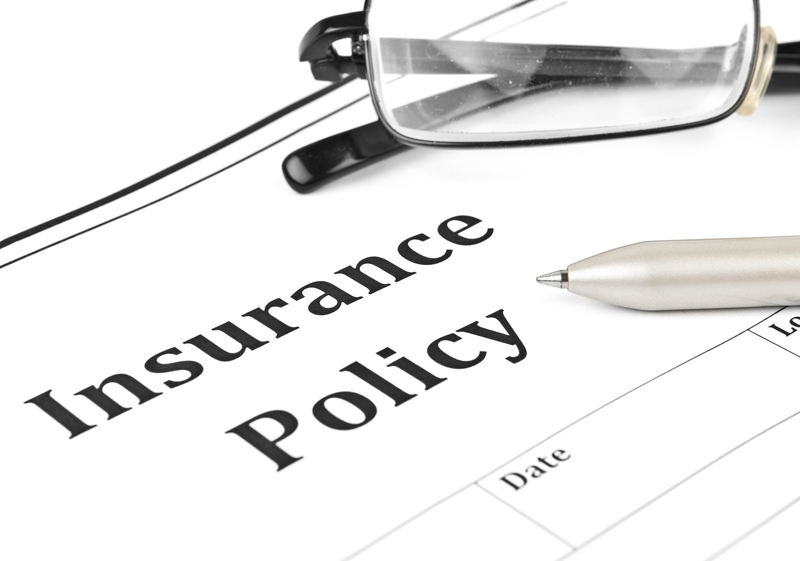Avoid the Pitfalls of Piano Moving: The Professional Advantage
Pianos are not just exquisite musical instruments--they're often priceless family heirlooms, centerpieces for homes, and significant emotional investments. Whether it's an upright piano or a grand piano, moving such a delicate instrument involves far more than simply lifting and transporting. It requires precision, expertise, and care. While many homeowners may be tempted to try a do-it-yourself (DIY) move or opt for a general mover, the pitfalls surrounding piano relocation are numerous. This comprehensive guide explores the professional advantage in piano moving and explains how avoiding common mistakes can help ensure your instrument arrives safely, sounding as beautiful as ever.

Understanding the Complexity of Piano Moving
Most people underestimate the intricate complexities involved in moving a piano. Unlike regular pieces of furniture, a piano is a blend of artistry, craftsmanship, and mechanical precision. Even the smallest vertical piano contains thousands of individual parts, many of which are sensitive to bumps, shifts in humidity, and temperature changes.
- Average upright pianos can weigh between 300-500 pounds.
- Grand and baby grand pianos may exceed 1,300 pounds.
- Pianos are highly sensitive to jarring movements due to intricate inner mechanisms.
- Improper handling can result in tuning disruption, cosmetic damage, or even irreparable harm.
It's no wonder that specialized piano moving services exist. Entrusting your instrument to professionals can mean the difference between a seamless transition and an expensive disaster.
Common Pitfalls of DIY Piano Moving
Many people consider DIY piano moves to save costs or because they underestimate the challenge. However, this often results in avoidable--and costly--mistakes. Here are some common pitfalls:
1. Underestimating the Weight and Awkwardness
Pianos are uniquely heavy and unwieldy. Their weight isn't distributed evenly, making them difficult to balance, lift, and carry. Without the right equipment or enough manpower, movers risk injury or property damage.
- Strained backs, hernias, and muscle injuries are common among inexperienced movers.
- Pianos may slip, leading to scratched floors, dented walls, or broken stairs.
2. Lack of Proper Equipment
Professional piano movers come equipped with skid boards, straps, dollies, ramps, and padding designed especially for pianos. DIY movers often attempt to substitute with makeshift materials, dramatically increasing the risk of mistakes.
3. Insufficient Knowledge of Piano Construction
Pianos are complicated machines. Mishandling during movement can jar hammers, strings, pedals, and keys out of alignment, or even cause soundboard cracks. Non-specialist movers may unknowingly apply pressure to sensitive components, leading to expensive repairs.
4. Ignoring Environmental Factors
Temperature and humidity changes during relocation may affect a piano's tuning and integrity. Professionals know how to minimize exposure to these elements during the move.
5. Failing to Secure the Instrument
During transit, pianos should be securely wrapped and immobilized to prevent shifting. Amateurs may skip this step, resulting in internal damage or cosmetic scuffs.
6. No Adequate Insurance or Liability Coverage
Should an accident happen, DIY movers often have no insurance and must cover all repair or replacement costs themselves. Professional piano movers offer adequate insurance coverage for peace of mind.
The Professional Piano Moving Advantage
Let's delve into the clear benefits of hiring a professional piano moving company and why their specialized knowledge makes a difference:
Expertise and Experience
Professional piano movers possess in-depth training and years of experience handling all types of pianos in a variety of settings. They understand the unique challenges posed by different models, whether it's a concert grand, upright, or spinet.
- They know how to properly disassemble and reassemble components, such as legs or pedals, when necessary.
- They use proven techniques to maneuver pianos through tight spaces, stairs, or elevators without damage.
Specialized Equipment
Unlike generic movers, professionals invest in industry-specific tools designed for piano relocation. This includes:
- Piano skids (or boards) to safely move grand pianos on their sides
- Heavy-duty dollies and ramps for smooth transport
- Padded blankets and shrink wrap to prevent scratches and dings
- Strapping systems to secure your piano during every leg of the journey
Attention to Detail
Moving companies specializing in pianos pay special attention to every detail, ensuring:
- Sensitive parts are protected and padded
- All pieces are cleanly disassembled and reassembled
- The instrument is secured and insured during transportation
Comprehensive Insurance Coverage
A major professional advantage is comprehensive insurance. Unlike DIY moves, professional piano movers carry liability and cargo insurance. This means that in the unlikely event of damage, repairs and replacements are covered.
Efficiency and Peace of Mind
By trusting your move to professionals, you save time, reduce stress, and prevent injury. With experts handling logistics, you can rest assured your piano will arrive safely and on schedule.
Piano Moving Process: What to Expect from Professionals
If you decide to hire a professional piano moving service, here's what you can expect:
- Pre-move assessment: Movers examine your piano's dimensions, weight, location, and destination to plan the move.
- Preparation: The instrument is padded and wrapped to protect wood and finishes. In some cases, components (like legs) are removed for safer handling.
- Secure loading: The piano is carefully loaded onto a skid, then onto a dolly, and maneuvered using specialized equipment.
- Transportation: Movers use padded trucks with strapping systems to keep the piano stationary and shielded from shocks.
- Unloading and placement: At your destination, the piano is safely rolled into the designated room, reassembled, and set in place.
Post-move instructions are often provided, including when to tune your piano after settling into its new environment.
Reasons to Choose Professionals Over General Movers
Although general movers may offer lower rates for transporting all household items, choosing a dedicated piano moving company is critical for the safety of your instrument. Here's why:
- Knowledge of intricate handling: Regular movers lack training in piano-specific handling and environmental needs.
- Specialized insurance: Coverage for standard moves may exclude high-value musical instruments.
- Preventing project delays: Inexperienced movers often underestimate the time and effort, leading to rushed or inadequate piano handling.
- Accountability: Professional piano movers are accountable for every stage of the process and stand by their work.
How to Find a Reliable Professional Piano Mover
Choosing the right team is essential. When searching for the best piano moving service in your area, consider these steps:
- Read customer reviews and testimonials--Reliable companies have positive feedback from satisfied customers.
- Confirm proper licensing and insurance--Never hire a mover lacking these credentials.
- Ask about equipment and process--A true specialist will detail their protection and handling methods.
- Request a comprehensive estimate--Prices should reflect the complexity and care required in piano moving.
Questions to Ask Your Piano Mover
- How many years have you moved pianos professionally?
- Can you share references from recent clients?
- What insurance covers are in place for my piano?
- Will my piano be disassembled, and if so, by whom?
- What precautions do you take for stairs or elevators?
Piano Moving Myths Debunked
Let's clear up some common misconceptions so you can make an informed choice:
- Myth 1: "Piano moving is just like moving furniture." Fact: Pianos are far more delicate and complex.
- Myth 2: "General movers are enough." Fact: Only piano specialists have the right training and equipment.
- Myth 3: "It will be cheaper to move my piano myself." Fact: Savings are quickly negated by repair or replacement costs due to damage.

Post-Move Tips: Caring for Your Piano After Relocation
Once your piano is safely in its new home, further steps will help ensure its continued beauty and performance:
- Let your piano acclimatize to its new surroundings for a few weeks before tuning. Moving can temporarily affect its sound.
- Avoid placing the piano near heat sources, windows, or areas with fluctuating humidity.
- Schedule a professional tuning with a piano technician. Relocation, vibration, and climate shifts can alter tuning.
- Inspect the instrument for any signs of external or internal damage and notify your movers if anything is amiss.
Conclusion: Move Your Piano with Confidence
Avoiding the pitfalls of piano moving is simple when you trust professionals. With years of experience, specialized equipment, and full insurance protection, dedicated piano movers eliminate the risk of costly mistakes. Choosing the professional advantage in piano moving provides peace of mind with every note your instrument plays, ensuring its timeless beauty and value are preserved for generations to come. Before you plan your next move, invest in expertise--your piano, your family, and your music deserve nothing less.
Ready to Move? Secure Your Piano's Future with Experts
Don't leave your beloved instrument's safety to chance. Contact a reputable piano moving specialist today and enjoy the ultimate professional advantage as your piano arrives in perfect condition at its new home.



